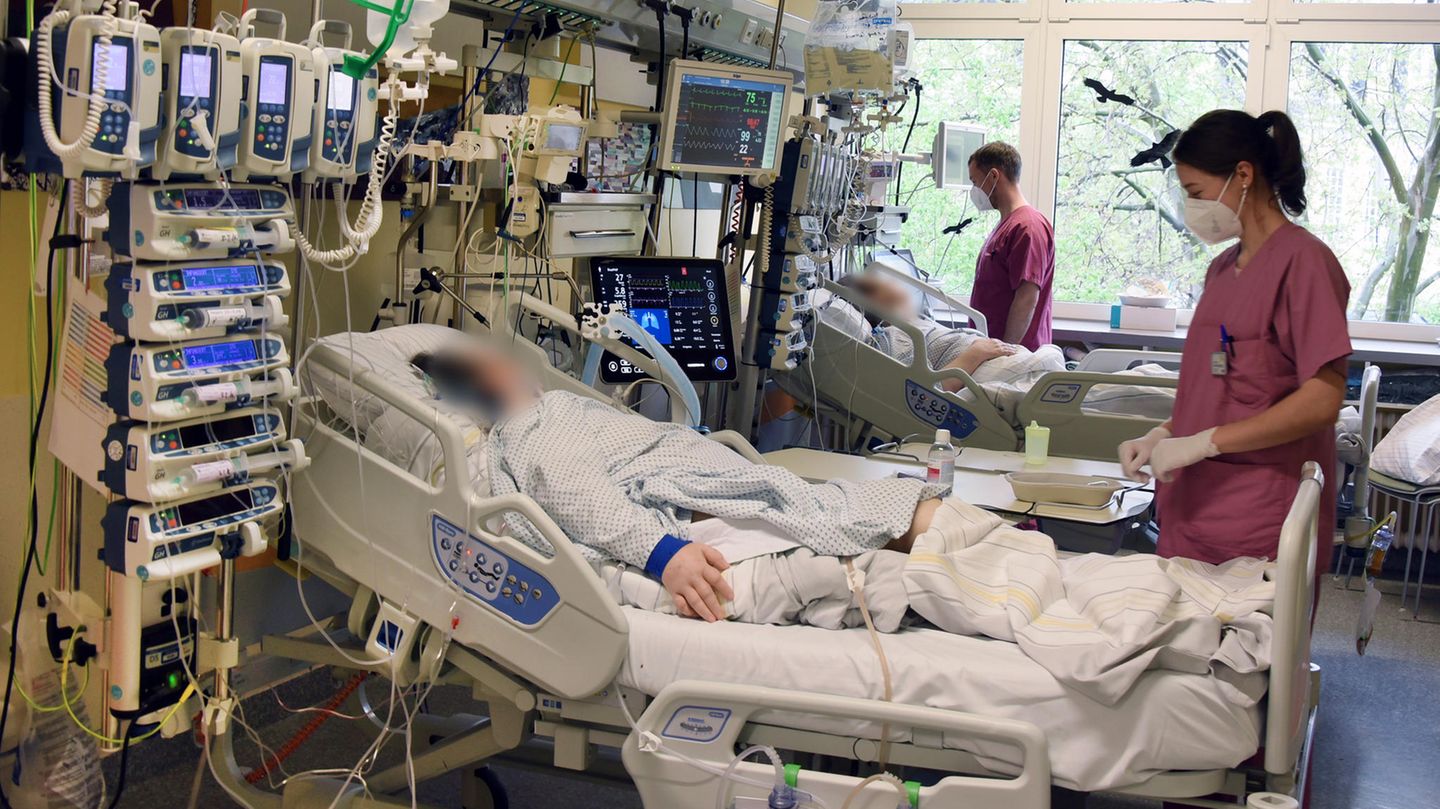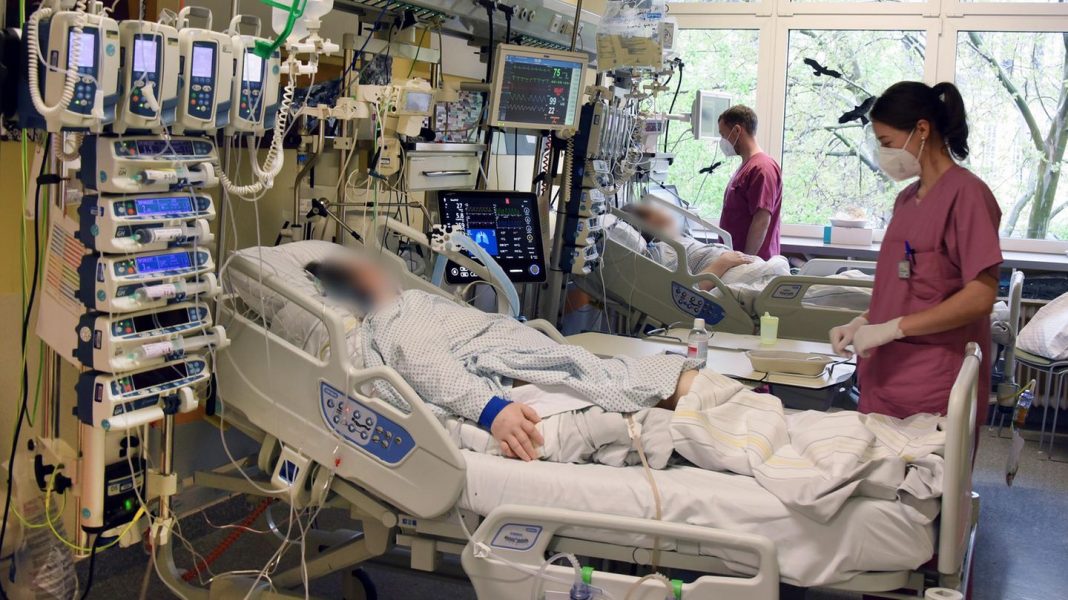Covid-19
Study: One in four people who are very seriously ill with Corona suffer from post-traumatic stress disorder

In a hospital in Halle (Saale), nurses in the intensive care unit with Covid-19 area work at the bedside of a patient of patients.
Those who end up in intensive care with Covid-19 and acute shortness of breath often develop post-traumatic stress disorder later, a study has found. Such patients need specific trauma treatment.
A quarter of those who are very seriously ill with Covid-19 later develop post-traumatic stress disorder. This was the result of a study by the University of Duisburg-Essen, for which more than 30,000 people were examined from April 2020 to March 2021, as announced on the occasion of the German Congress for Psychosomatic Medicine and Psychotherapy on Wednesday. According to them, in these people who were treated in the intensive care unit, on average, on the hundredth day after their discharge, the symptoms of trauma increased.
Martin Teufel, director of the Clinic for Psychosomatic Medicine and Psychotherapy at the LVR-Kliniken Essen, explained that the massively threatening experience of not getting any more air subsequently triggers so-called intrusions in these patients. This intrusion manifests itself “like a flashback, with a sudden massive feeling of helplessness and being delivered, of experiencing loss of control”.
Incisive experience is stored in the subconscious
The incisive experience in the intensive care unit is stored unstructured as an emotion in the subconscious. Patients can therefore be offered a specific trauma treatment, such as writing therapy. In this way, the experience is “brought into consciousness, processed and restructured,” Teufel continued.
The study also found increased stress in up to 65 percent of people during the pandemic. Depressive symptoms increased even further from November 2020, it said. “Overall, it remains to be noted that although anxiety and depression symptoms are increased, their severity is predominantly not so pronounced that the diagnostic criteria of a mental illness are met,” Teufel said.
According to the research, it was relieving for people to feel informed and to have high confidence in political and social measures. Among the so-called corona skeptics, the values for depressive symptoms and generalized anxiety were significantly higher than in the general population.
Taking emotions seriously
In this group, displacement is particularly pronounced “to avoid a paralyzing fear,” Teufel explained. The other coping strategy – “absorb and process valid information” – is negated.
He recommended taking seriously the emotions and beliefs of this group, and not pushing them into a defensive attitude. Instead, the discussion should be sought with evidence-based information.


